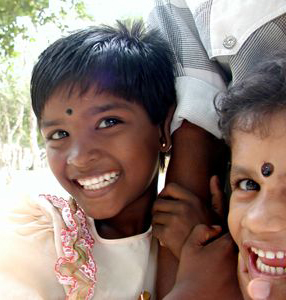|
 Tamil
Eelam Child Protection Act 2006 (Act No. 03 of 2006), enacted by
Tamil Eelam Legislature Secretariat and which became effective on
October 15, brings into law measures to protect the Rights and
well-being of children from inception of life through adolescence,
Head of Tamileelam
Judiciary, E. Pararajasingham, told TamilNet Wednesday. The Act,
containing 83 sections, makes education compulsory upto grade 11,
mandates registration of all child births, outlaws enlisting of
children under 17 years in Armed Forces, makes participation of
under 18-year olds in armed combat illegal, and proscribes all forms
of child labour. Regulations related to enlistment in Armed Forces
is dealt with in Sections 36, 37(a), 37(b), 38(a) and 38(b) in
Chapter 04 of the Act. Section 21 of The Child Protection Act
defines the Armed Forces as the Army, Navy, Air Force of the
Liberation Tigers of Tamil Eelam (LTTE), and the Tamileelam Police. Tamil
Eelam Child Protection Act 2006 (Act No. 03 of 2006), enacted by
Tamil Eelam Legislature Secretariat and which became effective on
October 15, brings into law measures to protect the Rights and
well-being of children from inception of life through adolescence,
Head of Tamileelam
Judiciary, E. Pararajasingham, told TamilNet Wednesday. The Act,
containing 83 sections, makes education compulsory upto grade 11,
mandates registration of all child births, outlaws enlisting of
children under 17 years in Armed Forces, makes participation of
under 18-year olds in armed combat illegal, and proscribes all forms
of child labour. Regulations related to enlistment in Armed Forces
is dealt with in Sections 36, 37(a), 37(b), 38(a) and 38(b) in
Chapter 04 of the Act. Section 21 of The Child Protection Act
defines the Armed Forces as the Army, Navy, Air Force of the
Liberation Tigers of Tamil Eelam (LTTE), and the Tamileelam Police.
Mr. E. Pararajasingham, Head of LTTE's Tamileelam Judiciary
"Our vision is that a fair and impartial Judiciary is the backbone
of our society—that is what our struggle is about," says Mr.
Pararajasingham.
Mr. Pararajasingham told TamilNet that the Tamileelam Legislature
Secretariat started working on formulating the Child Protection Act
in May, soon after completing the Tamileelam Land Act of 2006. "We
were directed by LTTE Leader Pirapaharan to formalize into law the
Rights of children, and penalties for violating these rights, within
a framework consistent with the deeply held values of Tamil culture,
tradition and history, and the international covenants on Rights of
Child," Mr Para added.
The legislators studied various child protection acts of other
countries including Malaysia, Australia, the United Kingdom and
Norway, and the existing international instruments.
The Act specifies Children's Rights on Education (Chapter 02),
Protection (03), Enlistment in Armed Forces (04), Investigating
Delinquent Children (05), Employment of Children (06), Birth (07),
Parental Responsibilities and Rights (08), Penalties for
Child-offenders (09), Custody and Guardianship (10) and
Miscellaneous (11).
The Tamileelam Legislature has earlier enacted Tamileelam Penal
Code and Tamileelam Civil Code in 1994. The Act prescribes Criminal
Procedure and penalties for offences committed against children, Mr
Pararajasingham said. The Tamileelam Child Protection Act prohibits
employment of children below the age of 16, and prescribes
employment of child labour as a crime punishable by two years of
imprisonment. Children between 16 - 18, could only be employed with
legal permission according to the Act.
Sexual abuse, and exploitation of children for sexual purposes are
punishable offenses with maximum 20-years and minimum 05-years of
imprisonment.The Act attributes gratis education as State
responsibility. Child welfare centers run by charitable
organisations and NGOs are mandated to comply with Sections 75 - 81
in Chapter 10 of the Act. Only organisations approved by Tamileelam
Administration are allowed to operate children's homes, and these
organisations are expected to register with the district level
administration.
Tamileelam Judiciary has 7 District Courts, 2 High Courts, an Appeal
Court, and a Special Bench. There are 26 Judges and more than one
hundred lawyers in Liberation Tigers of Tamil Eelam (LTTE)
controlled territories, serve in the Tamil judiciary where laws are
passed in Tamil.
"The Thamil Eelam Law College was established at Chunnakam (in
Jaffna) in 1993 to uphold the Rule of Law, fundamental rights and
human rights and respect for human values. We have over the years
won the confidence and trust of our people with the expeditious and
equitable processes of our judicial system. Tamileelam courts have
heard more than 39,000 cases and have ruled on 33,000 of those
cases," Mr Pararajasingham said.
Sri Lankan judiciary is in force in Sri Lanka Army (SLA) controlled
areas in NorthEast. Nearly 50 lawyers carryout law practice under
the Sri Lankan judiciary in the NorthEast.
Sri Lankan Judicial system has been criticised as biased against
Tamils and for having consistently failed to rule against members of
the Sri Lanka armed forces who have committed mass murders and other
gross human rights violations.
Related articles at tamilnet.com
18.10.06 Illiberal
democracy
25.02.06 Building
Tamil Eelam State: Kristian Stokke
10.11.04 "Tamils
have right to make their own constitution"
25.01.04 Rule
of Law, values said basis of Tamil society
30.10.03 Thamil
Eelam judiciary said a basis for rebuilding northeast
21.06.03 Negotiating
Tamil sovereignty
10.01.03 Sri
Lanka judiciary's failure led Tamils to take arms
|